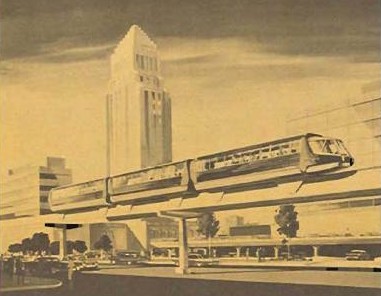
It can be frustrating to see planning and transportation reforms debated not on their merits, but through the lens of one group that feels its interests are threatened. Discussion of policies ranging from regional land use planning to local zoning laws often devolves into an "us" vs. "them" debate.
Alex Cecchini at Streets.mn makes a good point today about one of the classic divides: city vs. suburb. An efficient, productive city, he writes, benefits suburban residents as well:
Why should people from all areas of our metro, using all forms of transportation, support good urbanism!?
How will unshackling urban design and transportation options benefit single-family home owning suburbanites? For one, all that saved time and money benefits local economies. More people living closer to goods and services, spending less on gas, cars, mortgage payments, etc (most of which leaves our metro area through national or international corporations) can spend more of their hard-earned cash on local businesses. That’s good for everyone in our metro.
Even if you never step foot in a bus or ride a bike for daily transportation, even if you never live in an apartment downtown Minneapolis or a row house in Kingfield, allowing other people to do these things helps us all out. Every person riding his/her bike from North Minneapolis to downtown represents a car not on a local street. Every person choosing to drive shorter distances is a person not living on the fringe of the metro driving all the way in on interstates.
Elsewhere on the Network today: Cyclelicious takes a close look at the trends in pedestrian and cyclist fatalities in California. At Urban Cincy, a longtime local political activist offers advice to supporters of the city's embattled streetcar plan. And Strong Towns explains how bad street design persists in a Mississippi town, despite the wishes of the town's leaders.






